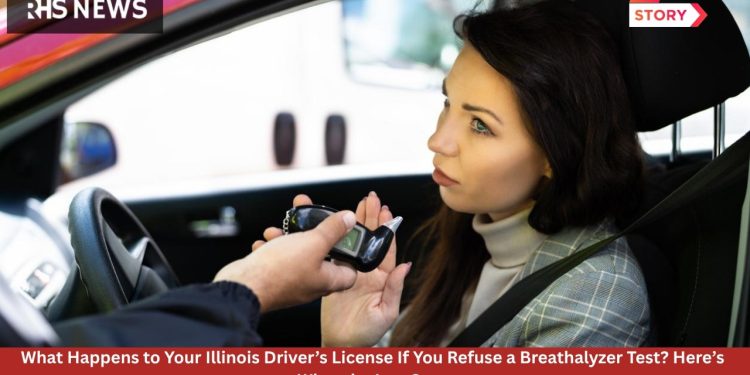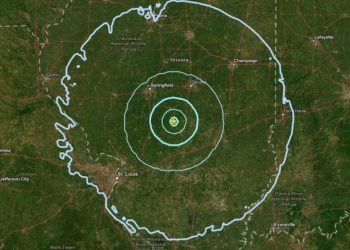Driving throughout Illinois, from the vibrant streets of Chicago to the quiet roads of Springfield and Peoria, is a privilege millions take advantage of every day. But with that privilege comes responsibility—and strict legal obligations under state law. One of the most pressing questions facing Illinois drivers who encounter law enforcement is: what happens if you refuse a breathalyzer test? This comprehensive guide breaks down the law, the process, the penalties, and the real-world consequences facing drivers statewide.
Understanding Implied Consent in Illinois
This Article Includes
- 1 Understanding Implied Consent in Illinois
- 2 What Happens When You Refuse a Breathalyzer in Illinois?
- 3 Potential Impact on Driving Privileges
- 4 Understanding Statutory Summary Suspension
- 5 The Right to Challenge the Suspension
- 6 Refusal and Impact on Criminal DUI Charges
- 7 Statistical Snapshot of DUI and Breathalyzer Cases in Illinois
- 8 Why the Law Is So Strict
- 9 What You Can Do If You Refuse a Breathalyzer
- 10 Conclusion
Illinois enforces what is known as “implied consent” law. This means that any person who operates a motor vehicle on public roads, whether in cities like Aurora or the suburbs of Naperville and Rockford, is considered to have already given consent to chemical testing for alcohol or drugs. This includes breath, blood, or urine tests if a law enforcement officer suspects you are driving under the influence (DUI).
The moment you accept your Illinois driver’s license, you are agreeing to these terms by law. If police have probable cause—such as erratic driving in downtown Joliet or after a fender bender in Champaign—they can request a breathalyzer after placing you under arrest for DUI. Refusal is an option, but it comes with immediate and significant consequences.
What Happens When You Refuse a Breathalyzer in Illinois?
Immediate Administrative Penalties
Refusing a breathalyzer in Illinois triggers an automatic penalty known as a statutory summary suspension. It doesn’t matter if you’re later found not guilty of DUI—the administrative suspension still kicks in unless you successfully contest it. The process unfolds the same everywhere: Chicago, Springfield, or Carbondale.
-
For a first-time refusal, your Illinois driver’s license will be suspended for 12 months.
-
If you’ve refused or been convicted of DUI within the past five years, a second refusal results in a three-year driver’s license suspension.
This penalty is handled by the Illinois Secretary of State and is not dependent on a criminal DUI conviction. Even if you’re acquitted in a Cook County courtroom, the suspension for refusal will stand unless overturned on technical grounds.
The Notice and Hearing Process
When you refuse the breathalyzer, the officer will confiscate your physical license and issue you a Notice of Statutory Summary Suspension. This document serves as a temporary driving permit for 45 days. After that period, your suspension goes into full effect.
You have the right to request a hearing to challenge the suspension, but you must do so within 90 days of the notice issuance. Hearings are often technical and require solid preparation, since judges focus narrowly on whether police procedures were followed—especially in cities like Decatur or Elgin where enforcement is rigorous.
Potential Impact on Driving Privileges
The penalties for refusal are more severe than for failing the breathalyzer for many first-time offenders. For example, if you fail the test (meaning your blood alcohol content, or BAC, is .08% or higher), the typical suspension is just six months. By refusing, you risk doubling or even tripling the length of time without your license.
If you depend on your car to get around the sprawling metro area of Chicago, or to commute between towns like Rockford and Dekalb, this can be a severe blow. Missing work, struggling with family responsibilities, and relying on sometimes-irregular public transportation become daily challenges. In communities with limited transit options—think rural Illinois—the impact of a suspension can be devastating.
Statistical Overview: DUI and Refusal in Illinois
Illinois maintains strict enforcement of DUI laws across the state. In recent years, nearly 22,000 people were arrested annually for DUI offenses. Of those, more than 90% lost their driving privileges—whether from testing over the limit or refusing chemical tests.
Cities like Chicago and Aurora have bustling nightlife and plenty of checkpoints, leading to higher arrest rates, but DUI and breathalyzer enforcement is uniform everywhere, from bustling suburbs to quiet college towns like Urbana-Champaign.
Understanding Statutory Summary Suspension
The statutory summary suspension is an administrative penalty handled outside of the criminal court system. Here’s how it generally works:
-
The officer provides a written “Warning to Motorist” before asking you to take the breathalyzer.
-
If you refuse, you’re informed—on the spot—of the specific consequences.
-
Your driver’s license is taken, and you’re given the notice; the suspension starts on the 46th day after arrest.
-
You must act quickly—within 90 days—to challenge the suspension in court.
The Right to Challenge the Suspension
Despite the automatic nature of the penalty, Illinois affords you the right to challenge the statutory summary suspension. You might prevail if:
-
Police did not have probable cause for your DUI arrest.
-
You weren’t properly warned about the refusal consequences.
-
There were procedural or technical errors in the arrest process.
It’s critically important to work with a legal expert, as hearings are technical and require swift, precise action. Challenging the suspension successfully could mean full license reinstatement, opening the door to drive again from Chicago’s Loop to Edwardsville’s campus.
Refusal and Impact on Criminal DUI Charges
Refusing a breathalyzer does not mean you won’t be arrested or charged with DUI. Illinois prosecutors can and do convict drivers based on other evidence—such as failed field sobriety tests, officer observations, or even video evidence captured in places like Joliet or Peoria.
-
The prosecution may argue that refusal to test indicates you knew you were over the legal limit.
-
The refusal can be introduced as evidence of consciousness of guilt at trial.
The administrative suspension and criminal DUI penalties are handled independently. If you’re convicted of DUI, you may face additional license revocation, hefty fines, required alcohol education, and even jail time—especially in serious cases or in cities with strict local enforcement like Schaumburg and Elgin.
Statistical Snapshot of DUI and Breathalyzer Cases in Illinois
Recent data paints a clear picture:
-
Around 22,000 arrests for DUI occur each year statewide.
-
More than 90% of those arrested lose driving privileges.
-
Male drivers under 35, especially between the ages of 25 and 34, are the most likely to be arrested.
-
The vast majority of DUI arrests happen between 11 p.m. and 4 a.m., most commonly on weekends.
Why the Law Is So Strict
Illinois’s tough approach is designed to deter drunk driving, protect public safety, and save lives. Alcohol-related crashes accounted for nearly a quarter of traffic fatalities statewide. Cities such as Chicago, Peoria, and Springfield have been on the frontlines of state efforts to reduce impaired driving, with checkpoints, educational campaigns, and stepped-up law enforcement patrols.
What You Can Do If You Refuse a Breathalyzer
Hire an Attorney Immediately
The window to contest a summary suspension is small, and the process is technical. Engaging an attorney with expertise in DUI defense gives you the best shot at challenging the suspension, navigating hearings, and protecting your rights whether you were stopped downtown in Chicago or on the highways surrounding Belleville.
Install Breath Alcohol Ignition Interlock Device (BAIID)
In some cases, drivers whose licenses are suspended after a refusal may qualify for a Monitoring Device Driving Permit (MDDP), which allows for restricted driving with a BAIID installed. However, refusal often makes you ineligible for these programs even as a first offender. This restriction can make reinstatement harder and compound the suspension’s impact across Illinois cities and towns.
Take Prompt Action
Waiting can cost you the chance to challenge the summary suspension. Request a hearing as soon as possible after receiving the notice, and gather any documentation or witness statements that may support your case.
Myths and Misconceptions
It’s a myth that refusing a breathalyzer avoids punishment or strengthens your legal defense. In Chicago, Springfield, Rockford, and every Illinois city, the law is clear: refusal equals automatic license suspension.
Some believe police can’t charge you with DUI without a breathalyzer—but prosecutors often use officer testimony, field sobriety results, dashcam footage, or witness statements to bring charges and secure convictions.
Conclusion
Refusing a breathalyzer test in Illinois triggers automatic, severe consequences for your driver’s license—regardless of where you’re stopped, whether it’s in Chicago’s busy Loop, the lakefront in Waukegan, or the rural roads of Morgan County. The law’s reach extends to every corner of the state, with everyone facing the same administrative penalties and legal protocols.
The best way to safeguard your rights, your driving privileges, and your future is to understand the law, know the stakes, and act quickly with experienced legal help if you’re involved in a DUI investigation. Illinois has designed its system to prioritize public safety and minimize impaired driving risks—but making informed choices when encountering law enforcement remains the responsibility of every driver across the Land of Lincoln.









